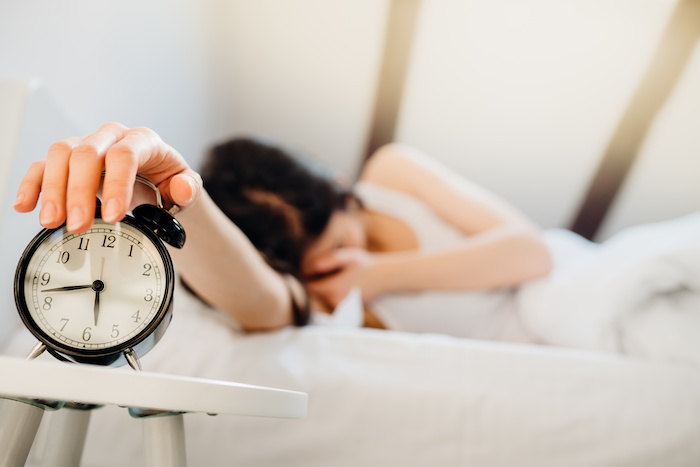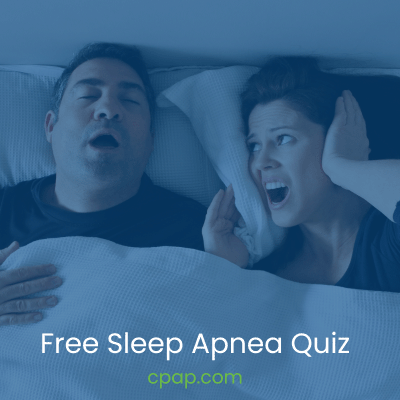
💡 Key Takeaways
- Distinguishing the Two: Sleep apnea is a condition where breathing stops and starts throughout the night, often linked to snoring. In contrast, sleep paralysis prevents movement and speech during sleep due to a phenomenon called atonia, or loss of muscle control.
- Demographics and Influences: Sleep apnea is more prevalent in older age groups and can be influenced by factors like obesity, alcohol intake, and smoking. Sleep paralysis, on the other hand, can start as young as 17 and doesn’t have a specific demographic.
- Interconnection: While sleep paralysis and sleep apnea are distinct conditions, they can be interconnected. Sleep apnea is a sleep disturbance, and since sleep disturbances can trigger sleep paralysis, those with sleep apnea might experience sleep paralysis more often.
- Symptoms and Manifestations: Sleep apnea symptoms include snoring, sleep disturbances, and difficulty breathing. Sleep paralysis symptoms can range from hallucinations while falling asleep or waking up to feelings of danger or out-of-body experiences.
- Addressing the Root Cause: Both conditions can be influenced by factors like alcohol, caffeine, and smoking. Improving sleep hygiene, reducing caffeine and alcohol intake, and practicing good sleep routines can help manage and alleviate the symptoms of both conditions.
Good sleep hygiene impacts optimal health. Without it, you can develop long-term conditions including heart disease, mood instability, and a low immune system.
Sleep loss and sleep disorders go hand-in-hand. While studies most associate narcolepsy with sleep paralysis, sleep apnea and sleep paralysis connect too.
Sleep apnea is a condition where breathing stops and starts throughout the night. It can often closely be related to snoring and cause difficulty sleeping.
Sleep paralysis prevents people from moving and speaking at night from an experience called atonia or loss of muscle control.
Is there a link between sleep apnea and sleep paralysis? Here’s what to know.
Sleep Apnea and Sleep Paralysis
There are many reasons why sleep apnea’s a blindspot when it comes to sleep paralysis. For one, sleep apnea increases with age. It’s three times more likely to develop for those aged 65-90.
Sleep paralysis is less prevalent than sleep apnea and can start as young as 17 years old. Sleep apnea is also influenced by the following:
- Obesity or Excess Weight
- Alcohol Intake
- Smoking
- Respiratory Conditions
- Gender
While those with sleep paralysis don’t have a specific demographic, many believe that recurrent isolated sleep paralysis (RISP) is random. It feeds off other sleep disturbances. Since sleep apnea is a sleep disturbance, it’s a factor of sleep paralysis.
To be clear, having sleep paralysis doesn’t mean you have sleep apnea. If you have sleep apnea and sleep paralysis though, they connect. Here’s how.
Are Sleep Apnea and Sleep Paralysis Related?
While the demographics of sleep apnea vs sleep paralysis differ at first, if you experience both, there’s a reason for that. Let’s break down the symptoms to better learn their relationship.
Sleep Apnea
It helps to compare and contrast symptoms. Sleep apnea manifests as obstructive, central, or complex. The main symptoms are:
- Snoring
- Sleep Disturbances Throughout the Night
- Difficulty Breathing or Gasping for Air
- Arrhythmia
- Brain Fog and Headaches
- Chronic Fatigue
- Lack of Focus Throughout the Day
- Mood Instability
Sleep apnea symptoms perpetuate sleep disturbance. Both Obstructive Sleep Apnea and sleep paralysis are parasomnias for that reason as they indicate abnormal sleep behaviors.
Since insomnia-related disorders impact sleep paralysis, that means sleep apnea and sleep paralysis can be experienced.
Sleep Paralysis
Some insist that sleep paralysis is a normal part of REM sleep. The experience, however, makes those with sleep paralysis feel otherwise. Its main symptoms are:
- Hypnagogic Hallucinations while Falling Asleep
- Hypnopompic Hallucinations while Waking Up
- A Sensed Presence or Feeling of Danger Upon Waking
- Vestibular-Motor (VM) Hallucinations, Such as Feeling like You’re Flying, Floating, or Out of Your Body
While sleep paralysis symptoms can seem supernatural, they manifest in the body in similar ways to sleep apnea. Isolated sleep paralysis (ISP) episodes can include:
- Sweating
- Difficulty Breathing
- Pressure on your Chest
- Headaches
- Daytime Sleepiness
- Paranoia
Can Sleep Apnea Cause Sleep Paralysis?
Sleep apnea is influenced by alcohol, caffeine, and smoking—and so is sleep paralysis. Poor sleep hygiene informs sleep disturbances, which causes sleep deprivation.
Sleep deprivation feeds sleep apnea, which can feed sleep paralysis. Sleep deprivation manifests as disorders, and the disorders perpetuate the stress.
The good news is that knowing that sleep deprivation is the root means you can change it. Here’s how to break through the cycle of sleep disturbances.
1. Reduce Caffeine, Alcohol, and Smoking
Sleep is a basic human need, so making treating sleep apnea and sleep paralysis at night a priority is necessary.
Assess your relationship with caffeine, alcohol, and smoking to improve your body’s physical, mental, and emotional condition.
2. Exercise
Since sleep apnea is propelled by weight, exercise can be a remedy. Improving your physical health can help the severity of your sleep apnea.
Plus, exercising regulates your body temperature and cardiovascular health to aid with sleep.
3. Diet
Food and exercise go hand-in-hand, though most don’t consider them together with regard to sleep health. Yet, there’s a reason for the saying, you are what you eat.
Different foods impact sleep quality, so consider how changing your diet can help you sleep.
4. Practice Good Sleep Hygiene
Sleep is a practice. Seeing it that way helps other life choices become their own practice too. Through practicing good sleep hygiene, you’ll see how everything is interconnected.
Good sleep hygiene means:
- Having Calming Routines, Like Meditating or Journaling Before Bed
- Eliminating Screen Time an Hour Before Bed
- Prioritizing Sleep
- Committing to Your CPAP Machine
- Getting to Bed at the Same Hour Each Night
Good sleep hygiene retrains your mind and body. Resetting your biorhythms allows for sleep to come easy.
Finding Peace of Mind
Sleep is as important as breathing. Sleep apnea and sleep paralysis threaten both of those things.
While sleep paralysis is mysterious in nature, its root cause is sleep disturbance.
If you have both sleep apnea and sleep paralysis, examine your sleeping habits, and talk to your doctor about getting on your way to a better night’s sleep.
Think You May Have Sleep Apnea? Take Our FREE Sleep Apnea Quiz!





